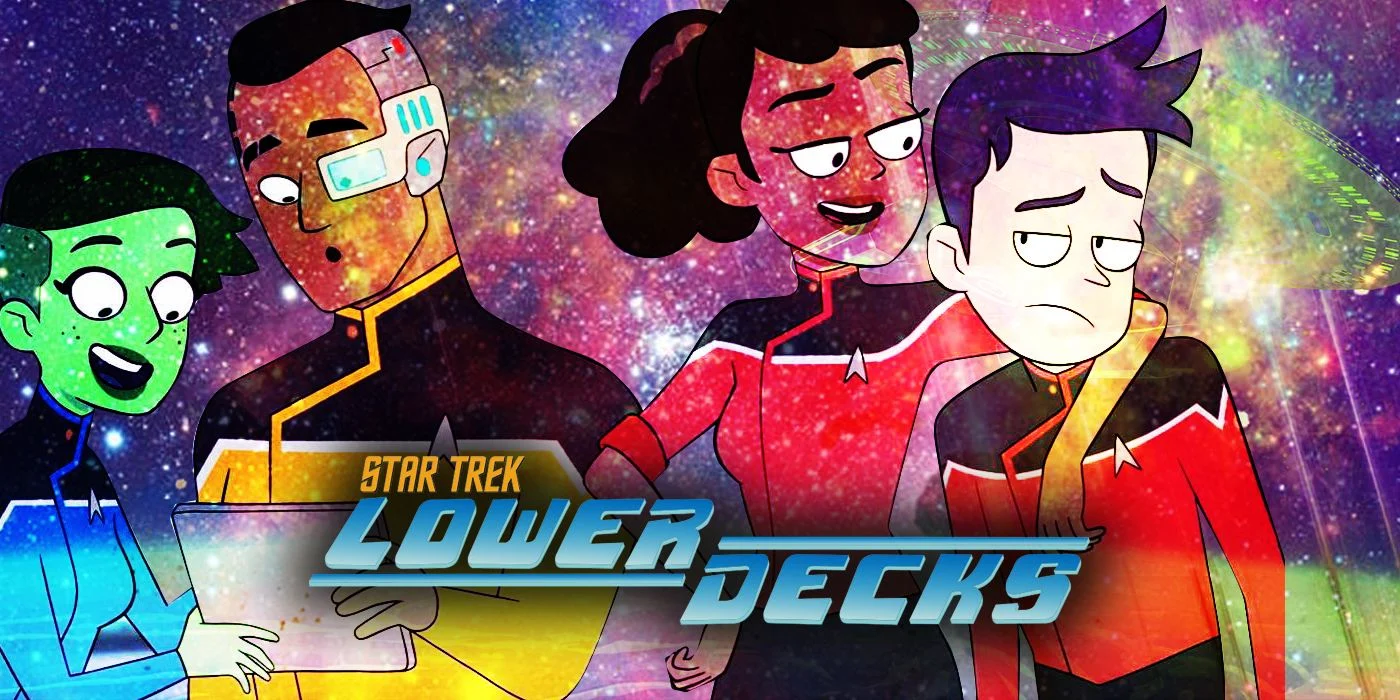This season, the third episode of Lower Decks’ focused a lot on Mariner and Tendi finally having a girls trip (and it going just as poorly as one might expect). However, one of the episode’s subplots is about their commanding security officer, Shaxs, suddenly showing back up like nothing ever happened. The main bridge crew often shows up in episodes, but what’s complicated about Shaxs is that he died heroically in last year’s season finale. This disturbs Rutherford because the security officer sacrificed his life to save him. And now that Shaxs is back, it’s driving him crazy, not knowing how that ever happened, despite the fact that his friends are brushing the whole thing off.
The semi-joke plot is in reference to the thousands of bridge crew experiences across the Star Trek franchise where characters valiantly risk their lives, sacrifice themselves or randomly die, only to come back later in the episode. This started with Spock sacrificing himself for the ship in The Wrath of Khan, only to come back because of an insane mind-meld and a planet growing him a new body in The Search for Spock. And let’s be honest, considering how often this happens, Starfleet really needs to offer better mental health care for all the weird stuff their officers go through.
Explaining Shaxs
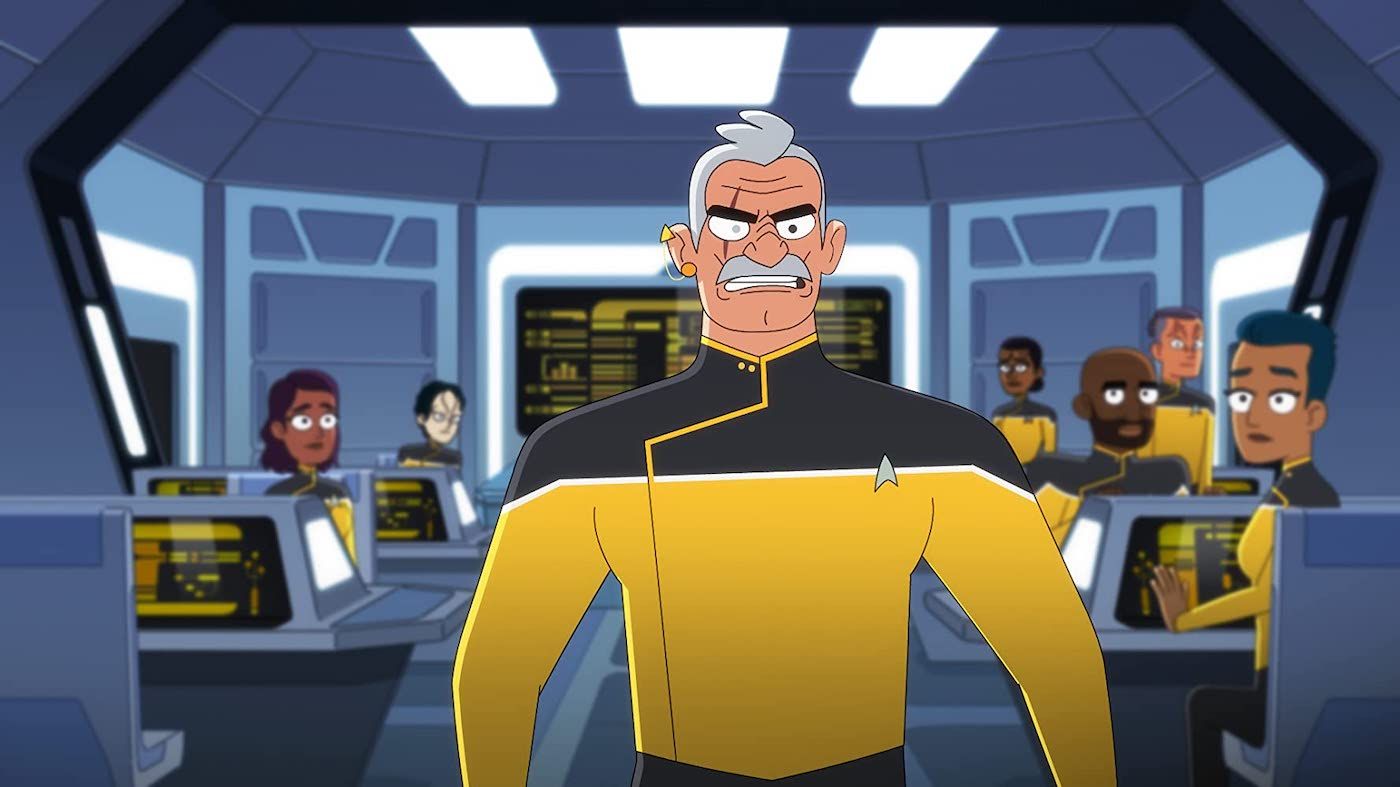
Let’s explain Shaxs particular circumstances a little more in-depth. When Shaxs died in the season 1 finale, he stayed behind on a Pakled ship to make sure it self-destructed. Initially, Rutherford would have been the one trapped there, but Shax took his place. Several months after his death, he suddenly appears on the ship again. In other Trek series, since the main bridge crew are the main characters, the episode would normally focus on the wild way he came back or him adjusting to the circumstances of the several months he missed. They did replace his position, after all.
However, since this is Lower Decks, the Rutherford and Boimlers of the world have no clue how Shaxs came back. They throw around a few referential theories (transporter pattern buffer accident, restored katra, mirror universe switcheroo, Borg rebuilding, etc.) but Rutherford spends a lot of the episode painfully curious and haunted by how this might’ve happened. And it’s clear Shaxs is dealing with it on a so-so level. He’s spending time with his friends like Billups, but he does jump down the throat of any cadet who asks because they are (justifiably) confused. In the end, Rutherford does ask Shaxs. The Bajoran gives in and offers him the details because his death was intertwined with Rutherford’s survival, but the audience still doesn’t know the exact details. All that’s shared aloud is that it involves some Black Mountain resurrection project and dark, haunting flashbacks.
History of Star Trek Bridge Adventures
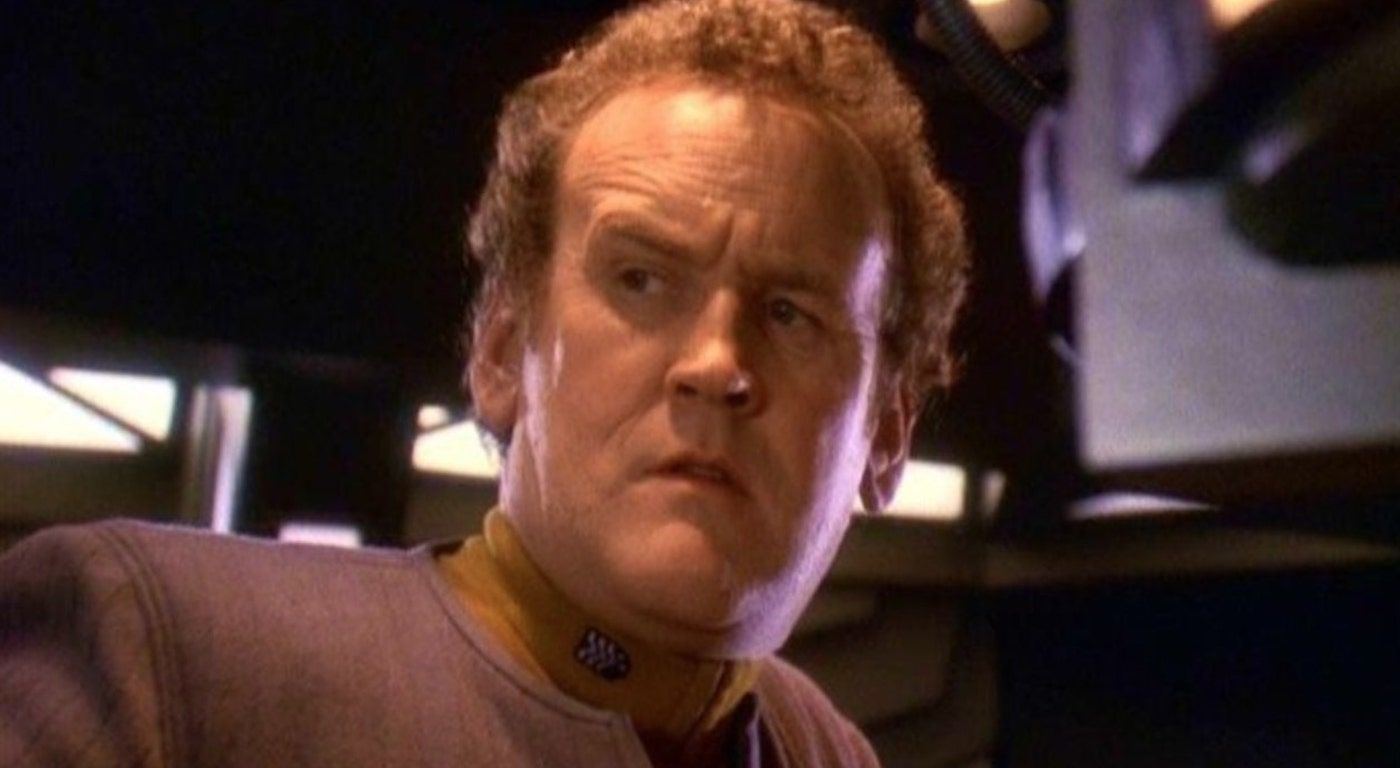
As referenced in the episode, Trek characters have been tortured, died, and resurrected in a variety of horrible ways, from violent hallucinations to Borg assimilation to body-hijacking. In a particularly horrifying episode that’s played off casually, Scotty from TOS was trapped in a pattern buffer for hundreds of years. The Enterprise D found him like that, old and confused and out of his own time. He expected his own Enterprise crew to find and save him, but now the majority of his friends (save Spock) are long dead. Even the engineering that he loved is completely out of date, and he’s forced to live out the rest of his life in an unknown galaxy. Yet, the episode is played off to be nostalgic and not the waking terror that it is.
Also, there’s a running joke among fans that the series has a lot of terrible things particularly happen to their everyman transporter chief, Miles O’Brien (Colm Meaney). He spends 20 VR years in jail, loses his daughter, gets kidnapped and put on trial by Cardassians. Hewatches his clone die, runs around a dying man’s mind and gets possessed by an evil alien. He also has to fight his wife when something similar happens to her, he goes through time travel and seeing his own death twice, and also has a lot of trauma from the Cardassian war that the writers only mention when it’s convenient. Throughout that, O’Brien gets little to no mental health support or therapy for his many, many traumatic experiences. In the episode right after, he’s not only back to normal duty but almost shipped off on a fun little jaunt to the Mirror Universe of all places.
O’Brien should’ve spent a few weeks on paid leave and months, if not years, in therapy for that, not on transporter pads trying to go to meet his weird Mirror Universe counterpart “Smiley”. Everyone gets that episodic shows are difficult to treat any differently, but if he wasn’t going to be in the episode much anyway, there could’ve been a throwaway line that basically said “O’Brien’s on leave for a little while”, right? That’s better than pretending nothing happened. But, in the end, let’s just hope O’Brien got lots of off-screen treatment for all the messed-up sci-fi shenanigans that broke his brain in two.
The Misuse of Troi (AKA Deanna Deserves a Raise)
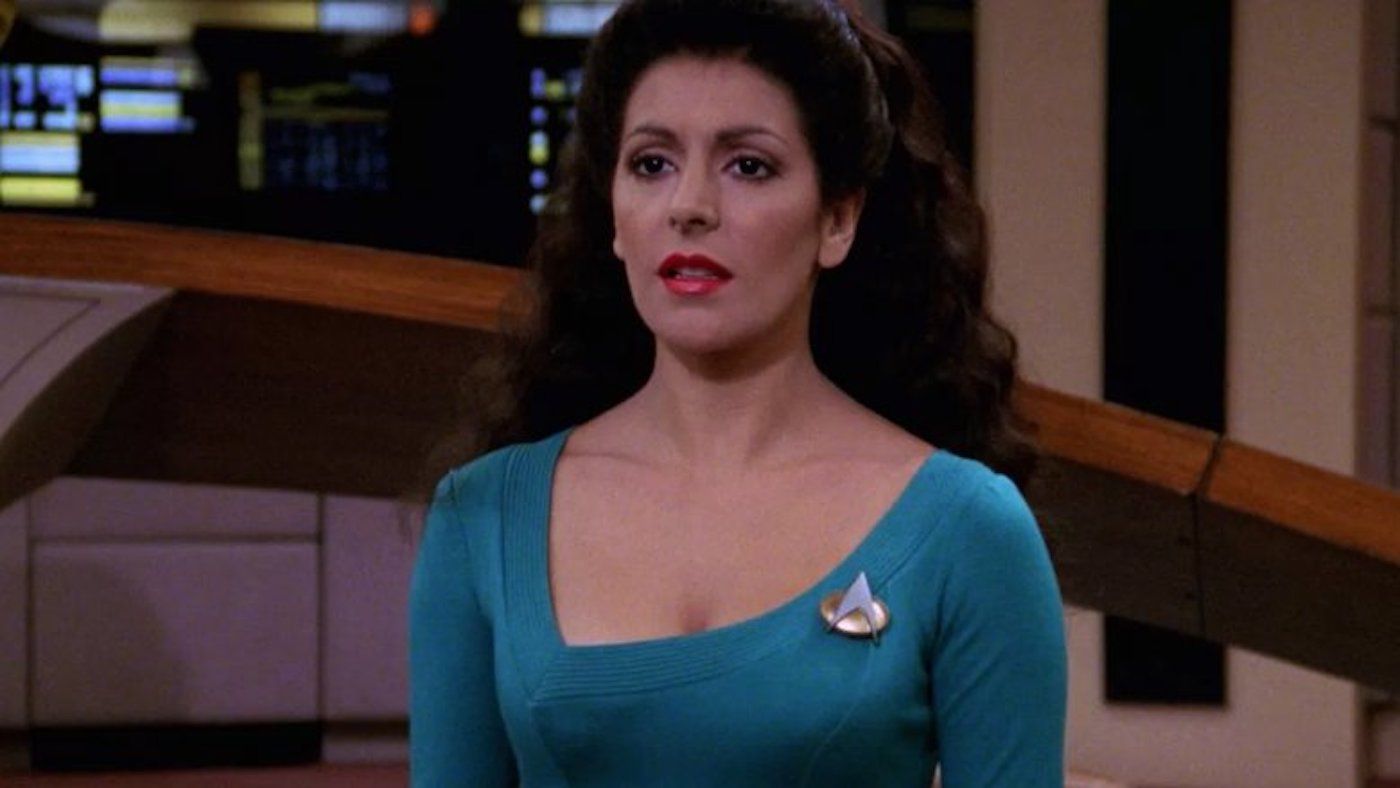
Speaking of, one of the largest counterarguments to this idea is the fact that both TNG and DS9 very deliberately have counselor characters: Ezri Dax and Deanna Troi. However, if you really look at the plots they got and the numbers around their work, the situation doesn’t add up correctly. Let’s take Deanna Troi first. The average therapist sees 25-45 patients a week. If the entire bridge crew just had a rotating schedule of seeing her once a week, that wouldn’t be so bad. However, it’s implied she’s the only counselor on the Enterprise D. And how many people are on that ship? 1,012. 907 of those are crewmembers, while the rest are their families. To put that in perspective, if Counselor Troi was seeing 45 patients a week and doing monthly check-ins with the entire 907-person crew, it would take roughly 3 weeks to accomplish that. If anyone needed to be seen more often or was working through a tough time, that would easily overload her schedule.
And considering how many horrible, traumatic things people watched on screen, it’s impossible that Counselor Troi could properly care for everyone on the ship. Not unless people weren’t going to therapy as much as they should, at least. If Captain Picard is any example, it seems even deeply traumatized people might be avoiding the counseling they need. Throughout the series, the only people we see Troi regularly counseling or advising are Lieutenant Barclay, Beverly Crusher, one-off characters of the week, and Worf and Alexander to build their father-son relationship. While all those sessions that fans do see are proactive, they pale in comparison to the number of people who should be coming to her office. If fans take into account how much Picard still suffers from his Borg past in his new series, perhaps he could’ve used a few more sessions.
Ultimately, either Counselor Troi isn’t able to convince people to come to her office, or she is too overwhelmed by the large crew to get to everyone who needs it. Similarly, Ezri counsels the crew in her last season of DS9, but one of her only real “cases” that the show focuses on is Garak’s claustrophobia. While that was a positive interaction, she rarely deals with the war trauma that DS9 Starfleet members must face. The 300 permanent residents of the station are as bad as Troi’s numbers, but it is still a lot for one counselor. And many other series don’t even have a counselor, despite all the therapy their people need, too.
Trek With Therapy
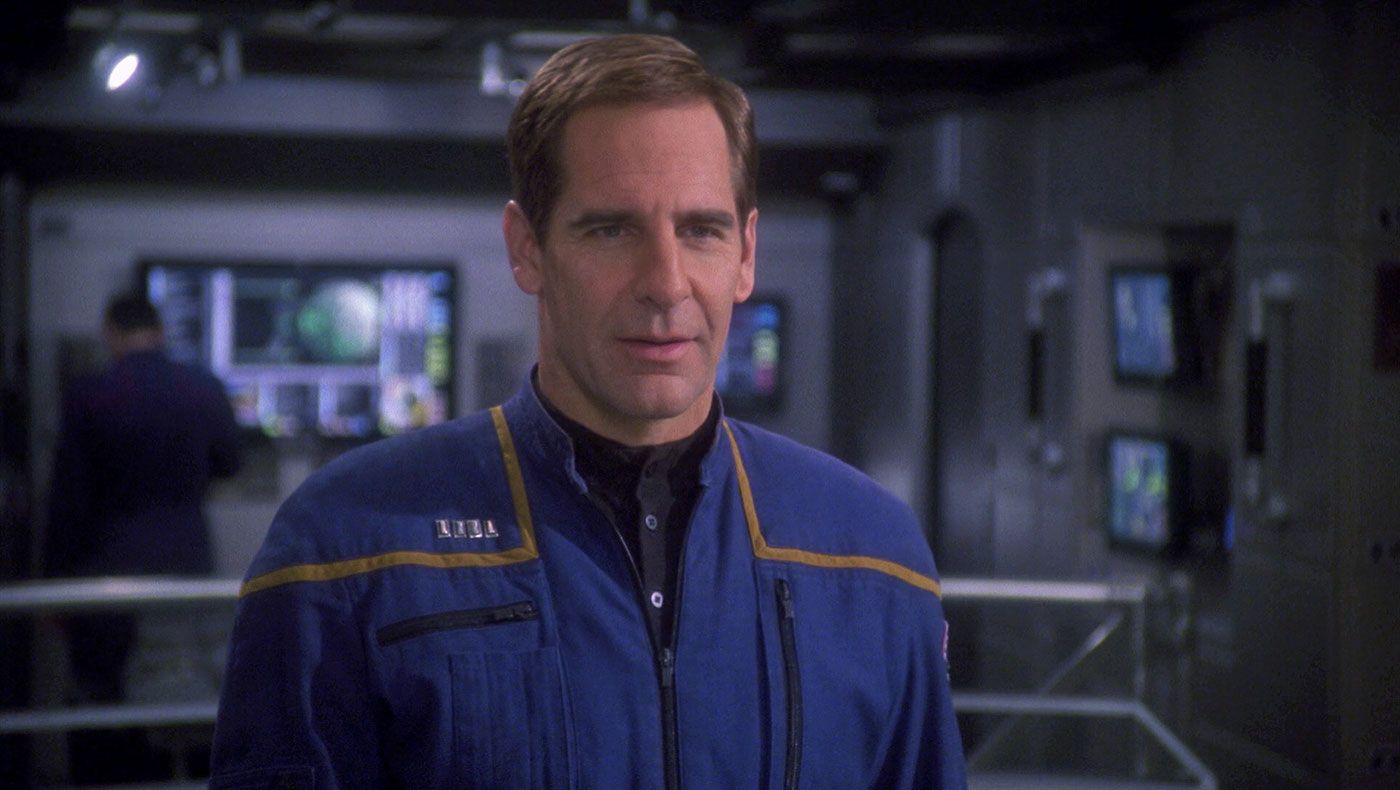
Therapy and mental health care have shown to be very important parts of maintaining a healthy human being, especially as people become more and more cerebral. So, if it helps modern folks, it definitely should be an absolute necessity for the dynamic officers of the future. Perhaps a bit more therapy would mean O’Brien would stop throwing out his shoulder in the holodeck as a distraction. Maybe Worf and Alexander would have a functioning family relationship. Captain Archer might have processed his issues with Vulcans better and treated T’Pol with more respect. Theoretically, Shaxs might have been able to come back without his entire existence turning into an uncomfortable taboo. Kurtzmann-era shows do seem to be trying to address personal trauma more, whether it’s Picard’s long service history or Burnham’s many childhood traumas. However, exploring those with a character is different than getting them therapy.
From TOS to Discovery, Trek characters are all a mess. So, really, it’s about time that Starfleet invests in more therapists so that their officers stop getting their minds casually snapped in half. And if it does happen? Well, maybe acknowledging that would make a bit more sense than pretending they are perfectly healthy, because characters like Shaxs and O’Brien and Picard certainly aren’t.

